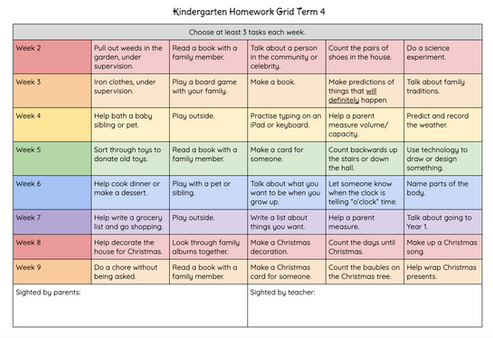Is Homework Worth It?
- Mrs Devoted Teacher

- Sep 30, 2021
- 4 min read
The great debate between systems, schools, teachers, parents and students is homework! Often systems and schools create homework policies enforcing and encouraging that certain amounts or types of homework are implemented at each stage of learning. However, often teachers, parents and students are the ones left dealing with the extra workload and pressure of completing homework after a day of school. But the question needs to be asked; is it worth it?
NO!
Traditional homework often requires a lot of work and pressure for the teachers who need to set it, hand it out each week and mark it. I don’t know about you, but the easier this process is, the better! I would prefer to spend my time getting to know my students, working with students, planning for learning and preparing resources for the classroom, not marking homework that often doesn’t get checked again. For parents, it is added pressure. Today, usually both parents are working to provide for their families and can be very time poor. They would prefer to spend their time playing with their children or spending time as a family. Then there are two possible student contexts for traditional homework. The first being that students are struggling with a concept and need more practise and the second being that students are confident with the concept and are given extra practise.
The first type of student would not benefit from extra practise at home without the guided and explicit teaching that should accompany the learning if they are struggling. The most likely outcome of this will be that parents do not have time to teach their child or do not have the skills or understanding to be able to teach the concept effectively. At the end of the day, you are the teacher and education has changed since this student’s parents went to school. Then, with the child struggling independently they will struggle to maintain a positive growth mindset and will begin to lose motivation. This results in poor wellbeing; children can end up disliking subjects and disengaging in learning, relationships between parents and children become strained when they fight about homework, and anxiety in students and parents increases.
It is very similar for the second type of student who is confident with the concepts taught in class. Extra practise of the skill for them at home would be meaningless because the teacher already knows that the child is successful with the concept and this achievement of the skill can be shared with parents in other ways. Therefore, there is no purpose to the task and it then becomes boring for the child because they are not being challenged and learning is monotonous making it disengaging. The results are the same; children can end up disliking subjects, relationships between parents and children become strained when they fight about homework, and anxiety in students and parents increases.
Instead, if you are required to set homework, provide ideas to practise concepts or skills through real life learning opportunities.
SO ALSO YES!
Especially in lower primary school, there is benefit to providing activities or games to reinforce learning that takes place at school, however it needs to be done in a meaningful and purposeful way. Providing homework tasks as ways to interact with the family or engage in real life learning experiences is most beneficial. Activities beneficial as lower primary homework tasks include:
Playing board games with family
Playing outside with pets
Playing sport
Dramatic play such as creating shops, restaurants, places in the community
Helping with gardening
Helping with cooking
Helping with household chores such as setting the table, folding clothes
Helping to build or make something
Writing invitations or cards for others
Going to the shops to read shopping lists, count items or collect items
Reading opportunities and listening to others read
In upper primary school, it becomes more challenging to provide real life learning experiences as homework because the content and skills change and become more complex. Upper primary homework activities could include:
Work experience with a parent
Helping with household chores such as doing the laundry, cleaning the house
Helping with gardening
Helping with cooking
Designing and building things
Repairing things
Going to the shops and being responsible for paying
Babysitting younger siblings with adult supervision
Volunteering with adult supervision
Personal interest projects
This type of homework can be shared through technology such as using Seesaw or Dojo, saving paper and the need for homework folders, sheets and so on. But in the case of students who do not have access to technology at home, it can be shared in a single workbook with a single sheet for the term. It is easy to mark or be sighted by the teacher who can check understanding of concepts in particular tasks if needed or missed during class time. However, if you are setting homework, I strongly recommend against the traditional worksheets and provide tasks that involve choice and a variety of real life experiences. Check out my homework grids for each primary stage:





















Comments